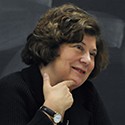2016 Morning Panelists
Presenter Bios
Exploring Your Institutional Fit Panel
 Naminata Diabate, Assistant Professor of Comparative Literature, Cornell University
Naminata Diabate, Assistant Professor of Comparative Literature, Cornell University
Naminata Diabate is Assistant Professor of Comparative Literature at Cornell University. A scholar of sexuality, race, biopolitics, and postcoloniality, Naminata’s research primarily explores African, African American, Caribbean, and Afro-Hispanic literatures, cultures, and film. Her recent writing has appeared in journals and collections of essays such as The Journal of the African Literature Association; Research in African Literatures, The Ethnic and Third World Literatures Review of Books, Fieldwork in the Humanities, Development, Modernism and Modernity in Africa; Oral and Written Expressions of African Cultures. Currently, she is working on two book manuscripts: “Naked Agency: Genital Cursing, Biopolitics, and Africa,” and “Same-Sex Sexuality and Mediality in Africa and Its Diaspora.”
 Marcos Esterman, Associate Professor in the Industrial and Systems Engineering Department, Rochester Institute of Technology
Marcos Esterman, Associate Professor in the Industrial and Systems Engineering Department, Rochester Institute of Technology
Marcos Esterman’s teaching interests are in product and process development, and systems engineering. Marcos’ research focuses on the Integration of Lean Principles into Systems Engineering, the Integration of Systems Engineering Principles into Life Cycle Assessment and Electrophotographic-based Additive Manufacturing. Marcos serves as the Faculty Associate to the Provost for AALANA Faculty, where he is focused on faculty retention. He is also the Graduate Program Director for the Industrial and Systems Engineering Department. Marcos is the current VP of Programs on the Executive Committee of the National GEM Consortium. GEM is a national non-profit providing programming and full fellowships to support increasing untapped domestic human capital at the graduate level in STEM fields.
 Katherine Hicks, Assistant Professor of Chemistry, SUNY Cortland
Katherine Hicks, Assistant Professor of Chemistry, SUNY Cortland
Katherine Hicks received her Bachelor of Science from Bucknell University in Biochemistry/Cell Biology. She completed her graduate work in the laboratory of Professor Carol Fierke at the University of Michigan in mechanistic enzymology. She performed postdoctoral studies in protein crystallography in the laboratory of Professor Steven Ealick at Cornell University. She joined the Chemistry faculty at SUNY Cortland in 2013.
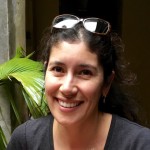 Alicia Muñoz, Associate Professor of Hispanic and Latin American Studies and Associate Dean of the Institute for Global Citizenship, Macalester College
Alicia Muñoz, Associate Professor of Hispanic and Latin American Studies and Associate Dean of the Institute for Global Citizenship, Macalester College
Alicia Muñoz received her Ph.D. in Romance Studies from Cornell University. Her research and teaching interests include contemporary Latin American narrative, popular culture, gender studies, border studies, and U.S. Latino/a literature. More specifically, she conducts research on representations of women’s violence, articulations of urban space, and women’s participation in drug trafficking. She has published articles in revered journals such as Arizona Journal of Hispanic Cultural Studies, MELUS, Chasqui, and Journal of Latin American Cultural Studies. As a former Mellon Mays fellow, she particularly enjoys working with Macalester’s MMUF program.
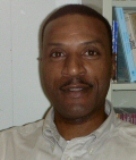 Ken Robinson, Associate Professor of Sociology and Anthropology, Clemson University
Ken Robinson, Associate Professor of Sociology and Anthropology, Clemson University
Ken Robinson is also an extension specialist with the Sandhill Research and Education Center in Columbia, SC. His research and outreach interests include rural sociology, entrepreneurship, health disparities, and sustainable development. He teaches courses in Community Sociology, Human Ecology, Social Impact Analysis, and a “creative inquiry” research course on Locally Grown Foods. Prior to joining the faculty at Clemson, his undergraduate alma mater, in 2005, he was a post-doctoral research associate at Cornell University, where he received his Ph.D. in Development Sociology. While at Cornell, Ken Robinson was awarded a Fulbright Fellowship to examine the emergence of small-scale, commercial agriculture in the economically disadvantaged, former homeland areas of South Africa. He is also a graduate of the LBJ School of Public Affairs at the University of Texas at Austin, where he received his Master’s degree.
Understanding What the Search Committee is Looking For – Panel for Humanities and Social Sciences
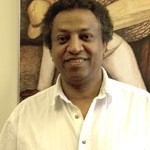 Fouad Makki, Associate Professor of Development Sociology, Cornell University
Fouad Makki, Associate Professor of Development Sociology, Cornell University
As an undergraduate at Cornell, Fouad Makki was particularly interested in comparative history and social theory, and his doctoral research at Binghamton was concerned with nation-state formation in Northeast Africa. In 2006 he joined the department of Development Sociology at Cornell, where he teaches courses on international development and social theory. His major research interest is post-colonial development with a primary focus on Africa.
Linda Robertson, Professor of Media and Society, Hobart and William Smith Colleges
Linda Robertson is a Professor and founder of the Media and Society program at Hobart and William Smith Colleges, and has taught there since 1986. She received her bachelor’s, master’s and doctorate degrees from the University of Oregon. One of her areas of study is how war propaganda has shaped cultural understanding of warfare. She is the author of the book The Dream of Civilized Warfare: World War I Flying Aces and the American Imagination. In 2012, she received a research fellowship from Oxford University to explore the influence of Virgil’s classic Aeneid on the cultural understanding of warfare in Great Britain. Her other scholarly interests include the rhetoric of economics, feminist issues and politics. She has published scholarly articles on the news coverage of the human catastrophe in New Orleans following Hurricane Katrina and on the representation of warfare in film. In 2016, she released a feature-length documentary, “Daughters of the New Republic: Harriet Tubman and Sarah Bradford.”
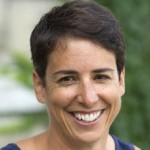 Kim Weeden, Professor and Chair of Sociology, and Director of the Center for the Study of Inequality, Cornell University
Kim Weeden, Professor and Chair of Sociology, and Director of the Center for the Study of Inequality, Cornell University
Kim Weeden is an affiliate of the Cornell Population Center, the Center for the Study of Economy and Society, and the Cornell Institute for Compensation Studies. Until recently, she was Director of the Institute for the Social Sciences, co-director and co-PI of CU-ADVANCE (now the Office of Faculty Development and Diversity) and the chair of the Inequality, Poverty, and Mobility section of the ASA. She is also a founding member and one of the Deputy Editors of Sociological Science, a new, open access, peer-reviewed journal for the very best sociological research on general social processes. Their journal model eliminates R&Rs and lengthy review times (they are averaging 12 days to decision, and promise no more than 30 days), brings intellectual exchanges about research out from behind the anonymity of the review process, and offers scholars, journalists, and policy makers immediate and free access to high-quality, peer-reviewed sociological research. In her own research, she studies income inequality, gender, social class, and education. Most of her research is quantitative, and uses large-scale, nationally representative surveys. She also teaches courses on inequality, some for the Minor in Inequality Studies.
Understanding What the Search Committee is Looking For – Panel for Science, Technology, Engineering, and Mathematics
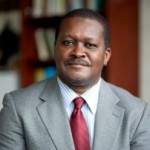 Lynden Archer, William C. Hooey Director and James A. Friend Family Distinguished Professor of Engineering, Cornell University
Lynden Archer, William C. Hooey Director and James A. Friend Family Distinguished Professor of Engineering, Cornell University
Lynden Archer joined the Cornell faculty in 2000. He was appointed director of the School of Chemical and Biomolecular Engineering in 2010. Since 2008 he has served as co-director of the KAUST-Cornell Center for Energy and Sustainability. His research focuses on transport properties of polymers and organic-inorganic hybrid materials. Archer is also interested in applications of hybrid materials for energy storage and carbon capture technologies. During the period 1993-94 he was a postdoctoral member of the technical staff at AT&T Bell Laboratories. He is a fellow of the American Physical Society and has been recognized with several awards, including the AICHE MAC Centennial Engineer Award, James & Mary Tien Excellence in Teaching Award, the National Science Foundation Early Career Award, and DuPont and 3M Young Professor Awards. He earned a B.S. in chemical engineering (polymer science) from the University of Southern California in 1989 and a Ph.D. in chemical engineering from Stanford University in 1993.
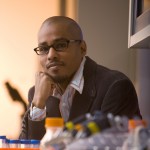 Avery August, Professor and Chair of the Department of Microbiology & Immunology, College of Veterinary Medicine, Cornell University
Avery August, Professor and Chair of the Department of Microbiology & Immunology, College of Veterinary Medicine, Cornell University
Avery August received a B.S. in Medical Technology from California State University at Los Angeles, a Ph.D. in Immunology from Cornell University’s Weill Graduate School of Medical Sciences, and postdoctoral training at the Rockefeller University. After a brief stint in industry at the R.W. Johnson Pharmaceutical research Institute as a Scientist in Drug Discovery, he moved to The Pennsylvania State University as an Assistant Professor of Immunology in the Department of Veterinary and Biomedical Sciences, where he rose through the ranks to attain tenure and become Distinguished Professor of Immunology and Director of the Center for Molecular Immunology and Infectious Disease. He teaches Immunology, and performs research on the molecular basis for inflammation and T cell responses, with emphasis on animal models of respiratory disease.
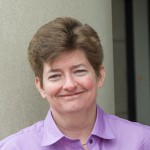 Melissa A. Hines, Professor of Chemistry and Director of Cornell Center for Materials Research, Cornell University
Melissa A. Hines, Professor of Chemistry and Director of Cornell Center for Materials Research, Cornell University
Melissa A. Hines earned an S. B. in chemistry from M.I.T. in 1984 and a Ph. D. in chemistry from Stanford in 1992. After two years of postdoctoral research at AT&T Bell Laboratories, she joined the Cornell faculty in 1994. Her research interests include chemical reactions at surfaces, nanoscale surface morphology and reactivity, and the mechanical properties of nanoscale materials. Of her many awards, she is most proud of having been named a Weiss Presidential Fellow in recognition of her contributions to and excellence in undergraduate education.

